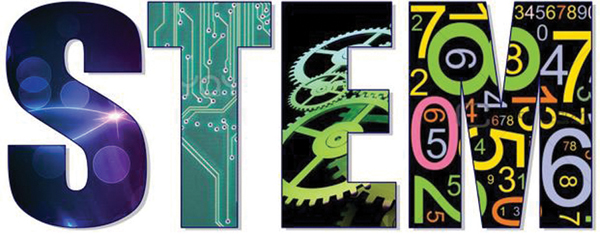News & Articles
Browse all content by date.
 It needs roots, leaves, and flowers.
It needs roots, leaves, and flowers.
STEM refers to Science, Technology, Engineering, and Mathematics. It is all the rage to ensure that a large number of public school students be grounded in STEM. That’s “where all the jobs are.”
But is that all our public schools should produce: “skills” that are “hot” today for large corporations? What happens when large corporations want different “skills”? How many FORTRAN or COBOL programmers are still working? How many large corporations were willing to let them learn C on the job? Or would the large corporations rather let them go and hire C programmers taught by a university? Programmers who would be cheaper because they didn’t have seniority. Or programmers who would be cheaper because they were H1-B hires? The old programmers would be familiar with how the company functioned. The new programmers would probably take longer to learn how the company functioned than the old programmers could upgrade their “skills”.
Tech innovation in and of itself is devoid of meaning. We need the humanities and art to give meaning. The humanities are the roots of a learning plant. They feed the STEM with ideas of what has worked in the past and insight to what might work in the future. The arts are the flowers of the STEM. Without music, drawing, and theatre, STEM is only more and more gadgets which became ends in of themselves. See Sherry Turkles’ “Alone Together” for how much are society has become tools of our gadgets rather than our gadgets being our tools. The leaves are the parts that extract learning from whatever sources are available.
Even before STEM became a buzz-word, I had plenty of STEM training.
I had the sciences of Physics and Chemistry in high school and college. I really haven’t used much Physics or Chemistry since then. I do remember that speed equals the acceleration multiplied by the square of time. I don’t know what use this has been to me except that I don’t think sky diving is a good idea. I do remember that water is two-parts hydrogen and one part oxygen and the carbon dioxide is one part carbon and two parts oxygen.
In college I took the technology of AC Circuits and flunked it. But all I really need to know today is that the wall sockets are AC circuits that when properly used can provide light as well as power for the computer I am typing this article on.
Oops, an aside. From English I learned the last phrase should be “for the computer on which I am typing this article.” And of course, from other reading I have learned that this is a forced construction based on the idea that English should follow Latin grammar.
In college I had “Engineering Tools and Processes”. I don’t remember my grade (not an A), but as all the others did, my brazing of one piece to another exceeded the base line. On the other hand, I never did get the hang of arc welding. I always got the rod stuck to the work.
Now Math is something I really got immersed in: calculus, differential equations, complex various, mathematical logic, and more: two years at a liberal arts college and two years in graduate schools. But what do I use math for now: balancing my checkbook, doing my taxes, and guessing an appropriate tip. I do remember that the squares of the sides of a right triangle equal the square of the hypotenuse. But might I have learned this just doing some carpentry? The 3-4-5 rule for making a right angle. About the only other formula I remember is the integral of e to the x equals a function of u sub n. I didn’t learn that in the class room!
With all that STEM, how did I learn so much about computers? On the job training and my own curiosity. I got a summer job between my junior and senior years to learn computing. With a text book from the company library and the help of others, I successfully completed a program that was used after I left.
When I went to graduate school as a graduate assistant, we were given some manuals and pointed at the computer room. It was the days of cards-in, cards-out but it was self-serve. None of this priesthood behind locked doors that gave back your work when they damn-well decided to.
Now computers have gotten both easier to use and harder to use. But how many of those who get the full STEM treatment will get and hold jobs in industry. Will a programmer be able to easily change jobs if he or she doesn’t have the right “skill set”? Or will companies look for new grads from other countries on H1-B visas. And after the visas expire just send them back home because the companies can get new grads with “up-to-date” “skill sets”.
This all reminds me of Kurt Vonnegut’s “Player Piano”. Workers were spit out of the system because their jobs were replaced by computer systems. Even managers were getting spit out. Vonnegut saw this back in the bad-old-days of cards-in, cards-out.
But what I really learned in school and on my own that was of lasting importance was in the roots, flowers, and leaves. What would my life be without all the literature I learned? Would I have enjoyed and learned from Shakespeare and other great books without being exposed to them in school? Would I have learned about government without civics and American history? Would I have enjoyed a wide range of music without a class in music appreciation. It is all of these that allowed me to enjoy life and contribute more than sitting in a cubicle designing “the next great thing.”
| Tweet |


